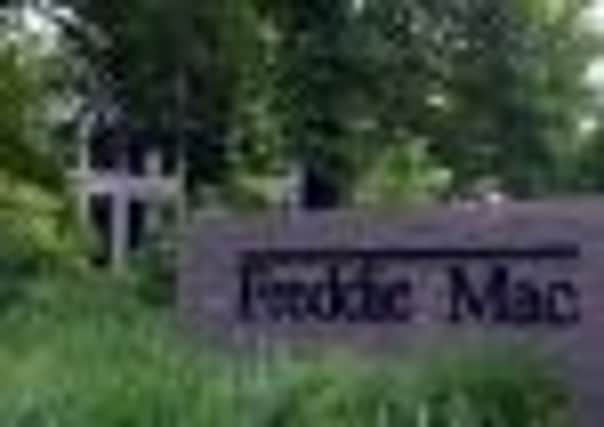Libor fixing ‘may cost Freddie Mac and Fannie Mae $3bn’


An internal memo from the inspector general of the Federal Housing Finance Agency (FHFA) urged the body, which oversees the firms, to consider legal action “promptly” over the issue.
The US government rescued Fannie Mae and smaller peer Freddie Mac during the 2008 financial crisis after both incurred massive losses on risky mortgages. The two companies have received about $170bn in taxpayer aid since then.
Advertisement
Hide AdAdvertisement
Hide AdRather than offering loans directly to house buyers, the government-controlled companies buy mortgages from lenders and repackage them as securities for investors, relying on the London interbank offered rate (Libor) to determine interest payments on the investments.
A spokeswoman for FHFA inspector general Steve Linick said: “We conducted a preliminary analysis of potential Libor-related losses at Fannie and Freddie and shared that with FHFA, recommending that they conduct a thorough review of the issue.”
However, a spokeswoman for the FHFA said it had not made any decisions about taking legal action and “has not substantiated any particular Libor-related losses for Fannie Mae and Freddie Mac”. She added: “We continue to evaluate issues associated with Libor and monitor Libor-related developments, recognising that other federal agencies are also involved in related matters.”
Libor is a benchmark governing rates at which banks lend to each other in the wholesale money markets. Barclays was fined £290 million by UK and US regulators in June for attempting to manipulate rates in an effort to paint a flattering picture of its financial health.
On Wednesday, Swiss banking giant UBS agreed to pay regulators in Switzerland, the UK and US about £940m after admitting that some of its staff had colluded with employees at other banks “to influence certain benchmark rates to benefit their trading positions”.
US prosecutors have also charged two former UBS traders – Roger Darin and Tom Hayes – over their part in the manipulation, the first individuals to be criminally accused over the international scandal.
Meanwhile, the Hong Kong Monetary Authority said yesterday that it had received information from overseas regulatory authorities about possible misconduct by UBS involving submissions for the Hong Kong interbank offered rate (Hibor) and other benchmarks in the region.
Dozens of European and US banks are under scrutiny for allegedly rigging the reference rates, and Royal Bank of Scotland is expected to reach a settlement with authorities in the near future.